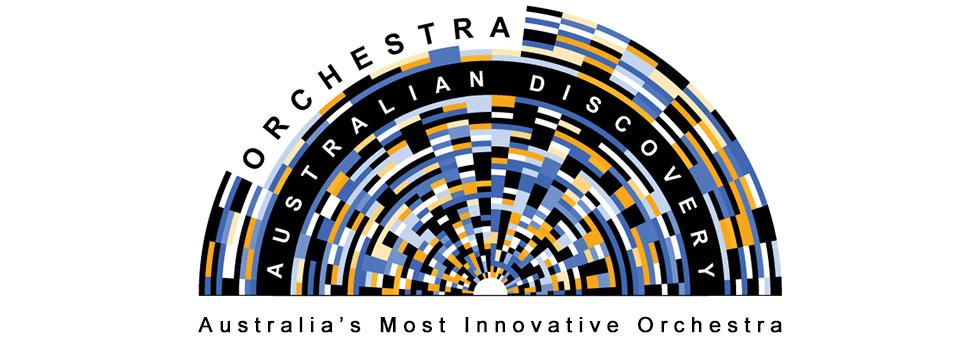The Music of Stuart Hancock
Biography

Stuart Hancock
Stuart is an award-winning British composer of music for film, TV, theatre and the concert hall, and is thrilled to have his music showcased by the Australian Discovery Orchestra. Stuart’s ambitious 2014 community concert project Snapshot Songs won him a coveted Ivors Classical Award and in 2019 he released Raptures, an album of orchestral works recorded with the BBC Concert Orchestra. The album, which features the Raptures orchestral suite and Variations on a Heroic Theme alongside Stuart’s Violin Concerto (performed by Jack Liebeck) received universally glowing reviews across the classical music press, with The Strad praising how “his gift for a sweeping, heart-rending theme makes this a thoroughly indulgent pleasure” and BBC Music Magazine enjoying this “wide-eyed, big-hearted, joyous hour of large lyrical music.”
http://www.stuarthancock.com/video/makingofraptures
Recent concert works include the new Century Overture commissioned for the London Phoenix Orchestra, and Sovereign for the Countess of Wessex’s String Orchestra (the ceremonial strings of the British Army) in honour of HM King Charles III. December 2023 saw the premiere of his new youth opera Pandora’s Box, created for London Youth Opera, following his operas Rain Dance (2010) and The Cutlass Crew (2017) for W11 Opera. Both of these earlier shows have been staged in the US by North Cambridge Family Opera (Boston), with Rain Dance enjoying a second revival production in March 2024.
Stuart’s latest large-scale work is the symphonic score for the new hand-drawn animated feature film Kensuke’s Kingdom, adapted from the beloved Michael Morpurgo book of the same name. Kensuke’s Kingdom had multiple wins at the British Animation Awards in March 2024, including Best Music for Stuart, and the film will be released in cinemas worldwide in the latter half of 2024. Stuart is also the composer of the music for the animated TV special We’re Going On A Bear Hunt (which he conducts for family audiences in a live concert presentation with the film), the BBC fantasy drama Atlantis (2014-15) and the Netflix/E4 comedy-horror Crazyhead (2016). His music can be heard in the ad breaks on TV: in the UK, his tunes are currently selling you Pampers, Temptations (cat treats) and Peckish (bird-seed), and encouraging you to shop at Sainsbury’s (with a re-working of Hey Big Spender as Hey Big Saver…)
www.stuarthancock.com
Variations on a Heroic Theme (2007)
Variations on a Heroic Theme is conceived as a flamboyant celebratory overture. It was commissioned by the Radcliffe Trust for the UK Rehearsal Orchestra on its 50th Anniversary and workshopped in open rehearsal at the orchestra’s residential Edinburgh course in August 2007 led by conductor Lev Parikian. After a short arresting introduction, the eponymous lion-hearted theme is presented by the brass and proceeds to enjoy increasingly exuberant variations showcasing various sections of the orchestra. This suddenly flicks into a deceptively dainty waltz episode with whirling woodwind solos, before flowing into a tranquil central variation featuring lyrical writing for strings, solo cor anglais and trumpet. Fugal woodwind figures bounce off this as the pace picks up again, building to a thrilling climactic variation of the theme with all guns blazing, bringing to a close this spirited orchestral showpiece.
Recorded as the opener of the Raptures album, Variations on a Heroic Theme debuted at #1 on Spotify’s list of new classical releases, curated by journalists, playlist-makers and general Spotify influencers, and was broadcast on both Scala Radio and BBC Radio 3’s flagship show In Tune.
Raptures (2003, orchestrated 2019) – World Concert Premiere
Raptures was originally conceived as a quartet for violin, flute, viola and cello. Orchestrated and expanded onto a broader symphonic canvas and recorded for Stuart’s 2019 album of the same name.
Each of the five short movements of Raptures are compressed elucidations of a single idea, with the title of each coming from words that Stuart remembers reading in a collection of Sylvia Plath poetry from his school days. The movements are contrasting but connected by recurring themes and motifs, in particular the 4-note sequence C-D-F-E, as heard in the tranquil opening of Fathom. A glassy, watery texture is evoked, as deep pizzicato basses and harp send gentle ripples through the flute, strings and bowed crotales, before a solo violin sings a soaring lyrical melody above. Rush is virtually the opposite and crashes in full of angst and paranoia in its jagged themes and nervous muted trumpet figures. In Lullaby, the shape of the 4-note motif is hinted at again, as a distant clock chimes. The solo flute plays a simple innocent melody, representing a mother singing her baby to sleep.
Meanwhile, the Serpent of the fourth movement is sinuous and seductive and rather comical, opening with a languid solo bassoon and developing its chromatic theme into increasingly delirious waltzes. Stuart confesses that this snake is “more like Kaa in Kipling’s Jungle Book than anything truly sinister,” commenting with a smile that while Sylvia Plath’s snake was dead, his one is “very much alive.” The finale is a jocular affair – entitled simply Rapture – opening with the strings employing bariolage arpeggios (topped with the C-D-F-E motif) with a tempo marked “fast and ecstatic.” Colourful themes whirl past, including reprises of material from all four previous movements. The action pauses briefly before a measured, sober chorale builds the 4-note motif into a towering climax (replicating that of the opening movement) and the suite closes with a final rousing flourish of the bariolage theme. It is a joyous, festive finale aiming to capture a mood Stuart describes as “stupidly happy…. stomping, jumping-in-puddles happiness.”
